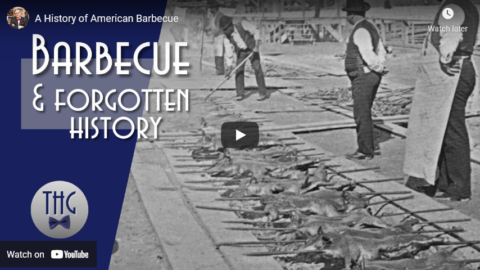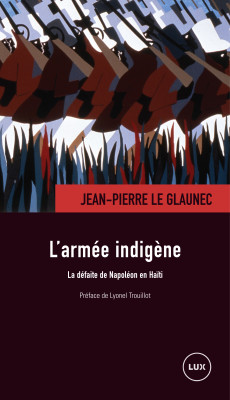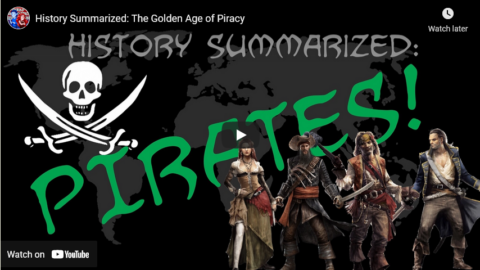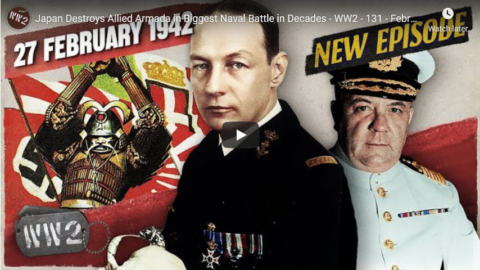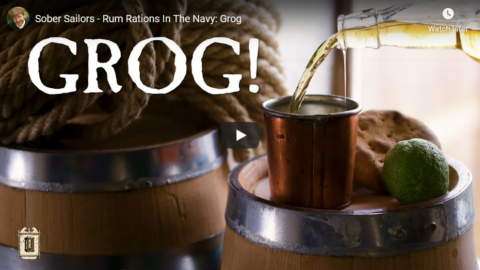World War Two
Published 2 Dec 2021America shares a language and large parts of its culture with Britain and Australia. But when tens of thousands of US troops arrive in 1942, things will be far from smooth. While the alliance remains firm, their soldiers will spend almost as much time fighting each other as they do the Axis.
(more…)
December 3, 2021
Australian-American War of 1942 – The Battle of Brisbane
August 30, 2021
A History of American Barbecue
The History Guy: History Deserves to Be Remembered
Published 29 Jun 2020Different cultures have been roasting meat over a fire since prehistory, but the practice took on special meaning in the United States. The History Guy remembers a brief history of American barbecue.
This is original content based on research by The History Guy. Images in the Public Domain are carefully selected and provide illustration. As very few images of the actual event are available in the Public Domain, images of similar objects and events are used for illustration.
You can purchase the bow tie worn in this episode at The Tie Bar:
https://www.thetiebar.com/?utm_campai…All events are portrayed in historical context and for educational purposes. No images or content are primarily intended to shock and disgust. Those who do not learn from history are doomed to repeat it. Non censuram.
Find The History Guy at:
Patreon: https://www.patreon.com/TheHistoryGuy
Join the History Guy for history trivia at https://www.quizando.com/TheHistoryGuyThe History Guy: History Deserves to Be Remembered is the place to find short snippets of forgotten history from five to fifteen minutes long. If you like history too, this is the channel for you.
Awesome The History Guy merchandise is available at:
teespring.com/stores/the-history-guyScript by THG
#ushistory #thehistoryguy #foodhistory
July 15, 2021
Haitian independence was bought with blood … a lot of blood
Theodore Dalrymple recently read a book by Sherbrooke University professor Jean-Pierre Le Glaunec on the Battle of Vertières which ended Napoleon’s attempt to recapture the island and re-enslave the population:
Haiti is one of those countries that you can leave after a visit, but that never quite leaves you. Its history is so heroic and so tragic, its present condition often so appalling, its culture so fascinating and its people so attractive, that even if it does not become the main focus of your intellectual attention, you never quite lose your interest in it, or in its history.
That is why, recently in a Parisian bookshop, I bought a book about the Battle of Vertières, the last gasp of the expedition sent out by Napoleon to Haiti, or Saint-Domingue as it was still known (“The Pearl of the Antilles” by those who profited from it), to return it to the condition of a vast slave plantation. General Leclerc, Napoleon’s brother-in-law, commanded, and 50,000 French soldiers, including Leclerc, lost their lives in this ill-fated and, from our current moral standpoint, malign expedition. Six weeks after its final defeat at the hands of the former slaves, Haiti, or Hayti — under the first of its many dictators, Jean-Jacques Dessalines, who made himself emperor and was assassinated two years later — declared its independence from France.
The book, titled L’Armée indigène, “The Native Army”, was by a French historian, Jean-Pierre Le Glaunec, who now teaches at Sherbrooke University in Quebec. The book recounts not only the history of the battle itself, which took place on 18 November 1803, but how it has been remembered, or forgotten (especially in France), in the subsequent two centuries, and the purposes to which the memory has been put.
The author is a specialist in Haitian and American history. His fundamental historical outlook is very different from mine, but that did not reduce my pleasure in his book, for he writes well and marshals much interesting evidence, the fruit of diligent original research in primary sources. And it seems to me that no one can fail to be moved by the heroism and determination of the former slaves to defend their newfound freedom from the attempt to return them to servitude. The slave colony of Saint-Domingue had been among the cruellest ever known; the methods of Napoleon’s expeditionary army grew more and more vicious as it suffered repeated decimations. That history has its ironies — it is possible that, had the slave revolution failed, Haiti would now be more prosperous than it is, like Guadeloupe or Martinique — does not detract from the righteousness of the cause of the former slaves. They could not be expected to foresee the two centuries of failure, poverty, and oppression to come. Besides, the dignity conferred by the victory cannot be simply set against its deleterious long-term material consequences: Man does not live by GDP alone.
The rest of the article delves into Professor Le Glaunec’s other recent book on George Floyd’s death and fails to show the same intellectual honesty and willingness to face unpleasant facts that his Haitian history demonstrates.
In other words, Professor Le Glaunec, who makes much of his dispassionate resort to historical evidence by contrast with his opponent, reveals himself to be at least as parti pris as that opponent. He displays a lack of curiosity about George Floyd that surely derives from his political standpoint. As for the dedication to the memory of George Floyd, it is morally obtuse: for a man does not become good by being wrongfully killed. A mother loves her son because he is her son, not because he is good, and therefore the grief of his family is understandable and easily sympathised with; but for others to turn him into what he was not, a martyr to a cause, is to display at once a moral and an intellectual defect.
The connection between historical explanation and individual morality is nowhere more complex than in Haiti. The victor of Vertières, the former slave Dessalines, was declared dictator for life, with the right to choose his successor, in the very document that announced the independence of Haiti and the freedom of its population. Dessalines then undertook a policy that today would be called genocide: he ordered that every white settler, man, woman, and child killed (about 6000 in all) who remained in the country after the last of the French troops should be killed, and his orders were carried out. The truly atrocious conduct of the French explained this genocide no doubt, but did it justify it? To answer in the affirmative is to claim that there are good, or justified, genocides; to answer no is to be accused of a lack of psychological insight into the righteous anger of Dessalines and others, or of a lack of sympathy for the state of mind of the victims of slavery.
The death of George Floyd was similarly wrong; but that does not mean that the reaction to it was right.
History Summarized: The Golden Age of Piracy
Overly Sarcastic Productions
Published 4 May 2015Blue’s back, and this time he’s hoisting the black flag and preparing to board. It’s okay: he’s got a letter of marque.
February 28, 2021
Japan Destroys Allied Armada in Biggest Naval Battle in Decades – WW2 – 131 – February 27, 1942
World War Two
Published 27 Feb 2021The Japanese are advancing in the Dutch East Indies and Burma, brushing aside defenders, but their biggest victory this week is at sea, when they not only brush aside the ABDA Fleet, but literally wipe it out of existence. Meanwhile Italian and German submarines are patrolling the Caribbean, sinking any Allied merchant shipping they find. It is yet another week of Axis successes.
Join us on Patreon: https://www.patreon.com/TimeGhostHistory
Or join The TimeGhost Army directly at: https://timeghost.tvFollow WW2 day by day on Instagram @ww2_day_by_day – https://www.instagram.com/ww2_day_by_day
Between 2 Wars: https://www.youtube.com/playlist?list…
Source list: http://bit.ly/WW2sourcesWritten and Hosted by: Indy Neidell
Director: Astrid Deinhard
Producers: Astrid Deinhard and Spartacus Olsson
Executive Producers: Astrid Deinhard, Indy Neidell, Spartacus Olsson, Bodo Rittenauer
Creative Producer: Maria Kyhle
Post-Production Director: Wieke Kapteijns
Research by: Indy Neidell
Edited by: Iryna Dulka
Sound design: Marek Kamiński
Map animations: Eastory (https://www.youtube.com/c/eastory)Colorizations by:
– Mikołaj Uchman
– Norman Stewart – https://oldtimesincolor.blogspot.com/Sources:
– National Portrait Gallery
– IWM: H 17365, A_238, CB(OPS) 5008Soundtracks from the Epidemic Sound:
– Rannar Sillard – “Easy Target”
– Howard Harper-Barnes- “Underlying Truth”
– Jo Wandrini – “Dragon King”
– Fabien Tell – “Last Point of Safe Return”
– Wendel Scherer – “Out the Window”
– Reynard Seidel – “Rush of Blood”
– Brightarm Orchestra – “On the Edge of Change”
– Craft Case – “Secret Cargo”
– Phoenix Tail – “At the Front”
– Johan Hynynen – “Dark Beginning”
– Wendel Scherer – “Growing Doubt”Archive by Screenocean/Reuters https://www.screenocean.com.
A TimeGhost chronological documentary produced by OnLion Entertainment GmbH.
July 6, 2020
Sober Sailors – Rum Rations In The Navy: Grog
Townsends
Published 24 Feb 2020Visit Our Website! ➧ http://www.townsends.us/ ➧➧
Help support the channel with Patreon ➧ https://www.patreon.com/townsend ➧➧
Instagram ➧ townsends_official
March 20, 2020
Will Stalin invade India? And what about the West Indies? – WW2 – Out of the Foxholes 008
World War Two
Published 19 Mar 2020In today’s episode of Out of the Foxholes, we answer exciting questions concerning Dutch and French colonies in America, British defence strategies in India and French soldiers stuck in Britain post-armistice.
Ask your own question for Out of the Foxholes here: https://community.timeghost.tv/c/Out-…
Join us on Patreon: https://www.patreon.com/TimeGhostHistory
Or join The TimeGhost Army directly at: https://timeghost.tvFollow WW2 day by day on Instagram @World_war_two_realtime https://www.instagram.com/world_war_t…
Between 2 Wars: https://www.youtube.com/playlist?list…
Source list: http://bit.ly/WW2sourcesHosted by: Indy Neidell
Written by: Rune Væver Hartvig
Produced and Directed by: Spartacus Olsson and Astrid Deinhard
Executive Producers: Bodo Rittenauer, Astrid Deinhard, Indy Neidell, Spartacus Olsson
Creative Producer: Joram Appel
Post-Production Director: Wieke Kapteijns
Research by: Rune Væver Hartvig
Edited by: Mikołaj Cackowski
Map animations: Eastory (https://www.youtube.com/c/eastory)Colorizations by:
Norman Stewart – https://oldtimesincolor.blogspot.com/
Dememorabilia – https://www.instagram.com/dememorabilia/Sources:
IWM H 3508, D 1725
gold by Phạm Thanh Lộc from the Noun Project
Rum by Andrejs Kirma from the Noun Project
sugar by Maria Zamchy from the Noun ProjectSoundtracks from the Epidemic Sound:
Hakan Eriksson – “Adventure Theme 3”
Johannes Bornlof – “The Inspector 4”
Reynard Seidel – “Deflection”Archive by Screenocean/Reuters https://www.screenocean.com.
A TimeGhost chronological documentary produced by OnLion Entertainment GmbH.
February 8, 2011
Royal Navy to withdraw patrol from Caribbean
The funding crisis for Britain’s Royal Navy is reported to be the reason for the cancellation of patrols in and around British dependencies in the West Indies:
Britain is to abandon its warship patrols of the Caribbean for the first time since the second world war because of the navy’s funding crisis, the Guardian has learned.
The withdrawal means the navy will no longer provide a warship for anti-narcotic operations in the region, and will have to reduce its role in disaster relief work.
The decision to stop the patrols, which is expected to be confirmed on Tuesday, comes at an embarrassing time for the Ministry of Defence — a documentary series on operations undertaken by the destroyer HMS Manchester in the Caribbean is due to start tonight. The programme on Channel Five follows the ship and crew throughout its seven month deployment last year.

